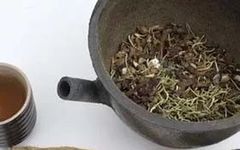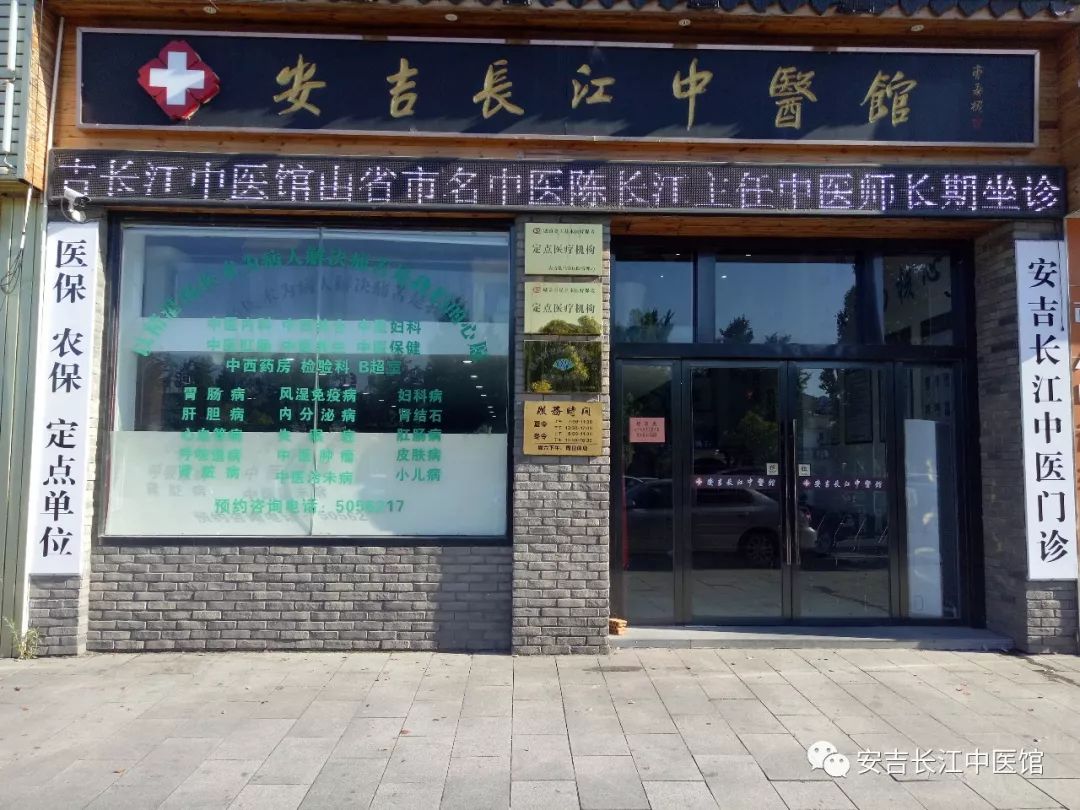
Traditional Chinese Medicine Decoctions refer to liquid preparations made by boiling Chinese herbal pieces in water to extract their active components. This is one of the most commonly used forms in Traditional Chinese Medicine (TCM). Decoctions are characterized by rapid absorption, effective therapeutic action, and flexibility in adjusting the composition, allowing them to comprehensively and adaptively address various ailments.
The preparation of TCM decoctions is a simple yet complex process, primarily involving two changes: the dissolution of the effective components of the herbs; and the chemical reactions among various physiological active components in the herbs. As stated in the Compendium of Materia Medica: “When taking decoctions, even if the herbs are of high quality and prepared according to the method, if the boiling is done carelessly, with improper water and fire, or if the timing is incorrect, the medicine will be ineffective.” This highlights that the correct preparation method is crucial for enhancing clinical efficacy, ensuring medication safety, and promoting patient recovery. Improper preparation or unscientific consumption of decoctions can directly affect their efficacy. To fully utilize the therapeutic effects of TCM decoctions and avoid adverse reactions, it is essential to master the methods and precautions for preparing and taking these decoctions.

1. Cleaning
Generally, there is no need to wash the herbs before decocting. Chinese herbs are usually processed and prepared, especially those treated with honey, salt, wine, vinegar, bile, ginger juice, and other auxiliary materials. Washing with water is to be avoided as it may reduce the medicinal efficacy. If the herbs do not have such treatments but appear sandy, a quick rinse with water before soaking is acceptable. However, soaking or washing should be avoided to prevent the loss of easily soluble effective components, and excessive washing with running water should be avoided to prevent the loss of small seed-like herbs (such as Tu Si Zi (Cuscuta Seed), Su Zi (Perilla Seed)), which could affect efficacy.
2. Choice of Utensils
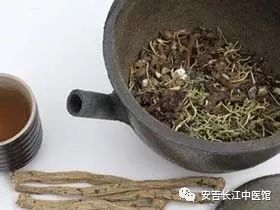
The preferred utensils are ceramic or clay pots, which have the advantages of uniform heat conduction, chemical stability, and are less likely to react chemically with the medicinal components. Stainless steel and enamel pots are the second choice. Avoid using utensils made of copper, aluminum, iron, or tin, as using an iron pot can produce insoluble iron tannate, turning the decoction black or green, with a bitter and fishy taste. Microwaves should also be avoided.
3. Soaking
1.For aromatic or easily volatile herbs, cold water soaking is recommended; for herbs without volatile components or those that are hard, warm water soaking is preferred.
2.Flowers, herbs, and leaves should be soaked for about 30 minutes; roots, tubers, seeds, minerals, and shellfish herbs should be soaked for 30-60 minutes.
3.In summer, soaking time should be shorter to prevent spoilage; in winter, soaking time can be longer to allow moisture to fully penetrate the herbs.
4. Water Usage
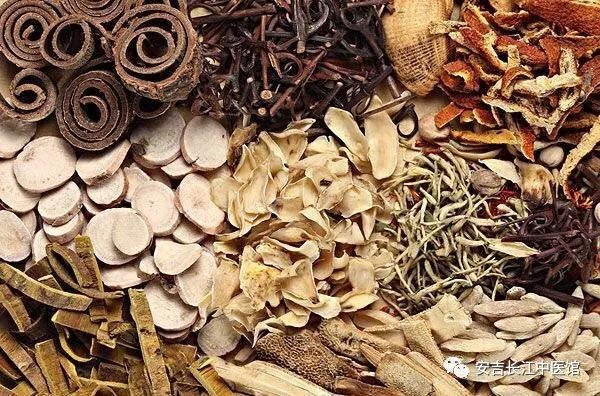
The amount of water should be sufficient to cover the herbs by 2-5 cm. When pressing down on the herbs with a hand, the water level should just cover the back of the hand. For the second decoction, the water amount can be slightly less. For herbs with high water absorption, the water level may drop after soaking, or for those that require longer boiling times, additional water should be added as needed.
5. Fire Control
Start with strong fire and then switch to low fire. Use strong fire (high heat) before the liquid boils, and after boiling, switch to low fire (gentle heat) to maintain a simmer, reducing evaporation and preventing the decoction from boiling over or drying out. During the decoction process, try to keep the lid on to prevent the medicinal aroma from escaping.
6. Decoction Time
One dose per day, with each dose generally decocted twice, or it can be decocted three times. The decoction time should be determined based on the formula’s therapeutic function and the properties of the herbs. For the first decoction:
(1)Generally, after boiling, decoct for an additional 20-30 minutes;
(2)For exterior-releasing herbs, heat-clearing herbs, and aromatic herbs, do not decoct for too long; after boiling, decoct for an additional 15-20 minutes;
(3)For tonifying herbs, first boil with strong fire, then switch to low fire and simmer for about 40-60 minutes.
The second decoction time should be slightly shorter than the first. During decoction, the pot should be covered to prevent the loss of effective components and the reduction of the decoction volume. Stir the herbs 2-3 times during the decoction process, using stirring tools made of ceramic, stainless steel, or copper. After stirring one herb, be sure to clean the tool.
7. Decoction Amount
The decoction amount should be determined separately for children and adults.
(1)For children, each dose should be decocted to 100-300 ml, with each dose decocted twice, resulting in approximately 50-150 ml per serving (about 100 ml for school-age children, and about 50 ml for infants). If the decoction is too much, it can be concentrated before taking;
(2)For adults, each dose should be decocted to 400-600 ml, with each dose decocted twice, resulting in approximately 200-300 ml per serving.
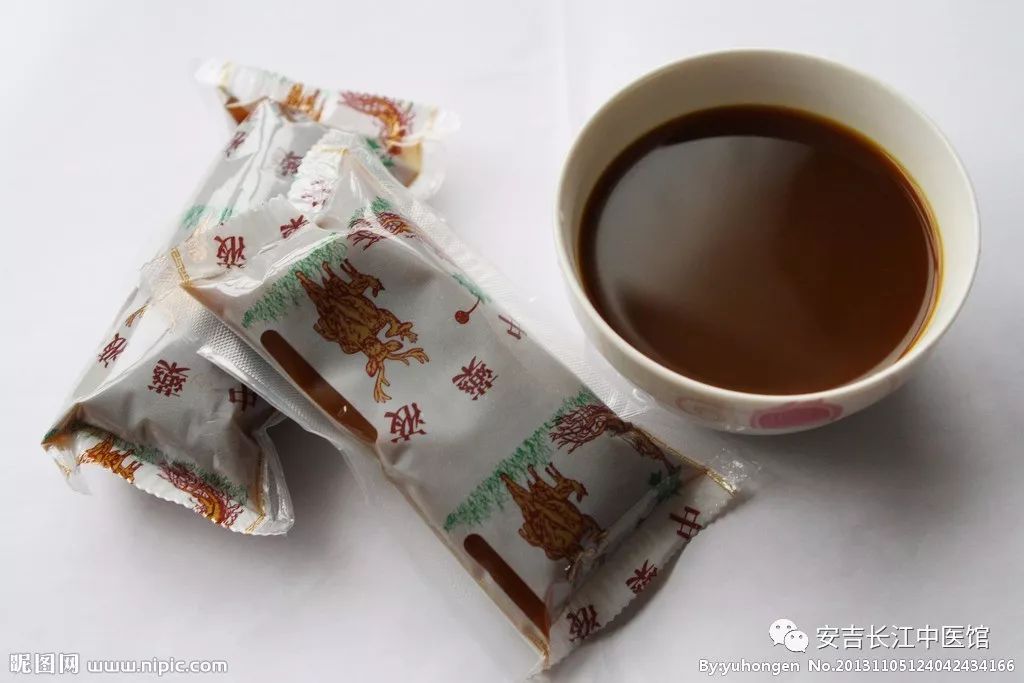
8. Special Decoction Methods
1.Pre-decoction
Herbs that require pre-decoction should be boiled for 10-15 minutes before adding other herbs for simultaneous decoction (which should have been pre-soaked).
(1) Hard-textured herbs or those whose effective components are not easily extracted, such as minerals and shellfish herbs, should be pre-decocted for 10-15 minutes before adding other herbs, such as Sheng Shi Gao (Gypsum) and Sheng Mu Li (Oyster Shell);
(2) Toxic herbs should be decocted for a long time on low heat to reduce or eliminate toxicity, such as Wu Tou (Aconite) and Fu Zi (Prepared Aconite), which should be pre-decocted for 1-2 hours;
2.Post-decoction
Herbs that are added later should be added when the first decoction is nearing the desired volume, and decocted together for 5-10 minutes.
(1) Aromatic herbs or those high in volatile oils should be added 5-10 minutes before stopping the heat to prevent the loss of effective components, such as Bo He (Mint), Dou Kou (Cardamom), Sha Ren (Amomum);
(2) Herbs that should not be decocted for long, such as Gou Teng (Uncaria) and Da Huang (Rhubarb).
3.Bag decoction
Herbs that are placed in a decoction bag and closed should be decocted together with other herbs.
(1) Small plant seed herbs that are sticky and can easily stick to the pot, making it difficult to filter the decoction, such as Su Zi (Perilla Seed), Che Qian Zi (Plantago Seed), Ting Li Zi (Descurainia Seed), Qing Sang Zi (Mulberry Fruit);
(2) Herbs that may overflow or settle during decoction, such as Pu Huang (Cat Tail Pollen), Hai Jin Sha (Lygodium), Qing Dai (Indigo), Zao Xin Tu (Clay);
(3) Fuzzy herbs that are difficult to filter after decoction and may irritate the throat, causing coughing or vomiting, such as Xuan Fu Hua (Inula Flower) and Pi Pa Ye (Loquat Leaf).
4.Dissolving
Dissolving herbs should be added to the decoction after the other herbs have been boiled to the desired volume and the residue has been removed. They should be simmered on low heat while stirring continuously until dissolved.
5.Separate decoction or stewing
Valuable herbs should be decocted separately to avoid waste, such as Ren Shen (Ginseng), Lu Rong (Deer Antler), Dong Chong Xia Cao (Cordyceps). Separate decocted herbs should be sliced thinly and boiled for about 2 hours to extract the juice; herbs for stewing should be sliced thinly, placed in a covered container with cold water (generally about 10 times the amount of herbs) and stewed in a water bath for 2-3 hours to extract the juice.
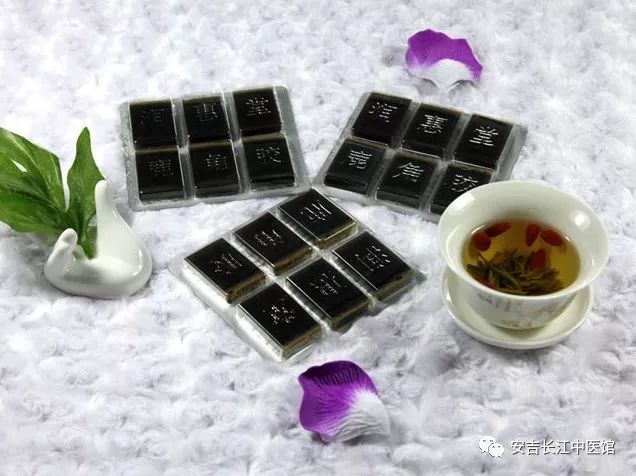
6.Taking with water
For valuable or small amounts of herbs that are difficult to dissolve in water, they should be powdered and taken with the decoction, such as San Qi Fen (Notoginseng Powder), Chuan Bei Mu Fen (Fritillaria Powder), He Che Fen (Gecko Powder).
9. Method of Taking
👉Frequency of Taking
1. For general conditions, take one dose of TCM daily, with each dose decocted twice or three times, divided into 2 doses (once in the morning and once in the evening) or 3 doses (once in the morning, noon, and evening).
2. For acute conditions, high fever, and critically ill patients, take 2-3 doses daily as needed or as directed by a physician.
👉Method of Taking
1. Warm taking: The decoction should be taken when it is neither cold nor hot, which is the general method to prevent adverse stimulation to the gastrointestinal tract from extreme temperatures;
2. Cold taking: The decoction should be cooled before taking, especially for cold-reducing herbs, which should be taken cold, such as bitter cold heat-clearing, blood-cooling, detoxifying, and hemostatic herbs;
3. Hot taking: The decoction should be taken while hot, especially for heat-reducing herbs, which should be taken hot, such as warming and exterior-releasing herbs; it is advisable to drink plenty of hot water or eat hot porridge after taking sweating-inducing herbs to assist the medicinal effect in promoting sweating, avoiding sour foods and cold water;
4. Single taking: Small doses of potent decoctions should be taken all at once to quickly exert their effects without harming the vital energy, concentrating the medicinal power for maximum effect, often used for pain or distension, as well as heat or bleeding conditions, typically in acute or severe cases;
5. Frequent taking: Taking the decoction multiple times at different intervals allows for sufficient contact with the affected area, leading to rapid effects, such as for throat conditions where frequent taking or sucking is recommended, or for vomiting patients who should take small amounts frequently or first take a small amount of ginger juice before taking the medicine;
6. Taking with water: Use the decoction to take any undissolvable or non-decoctable powdered herbs.
👉Timing of Taking
1. Taking before meals: Generally, take the medicine about 30 minutes before meals, especially for conditions below the waist, such as liver and kidney deficiency or diseases below the waist, to facilitate the downward action of the medicine; for treating intestinal diseases, it is also advisable to take before meals, as the empty stomach allows the medicinal liquid to directly contact the digestive tract mucosa, passing through the stomach into the intestines more quickly, thus being absorbed more effectively without being diluted by food in the stomach.
2. Taking after meals: Generally, take the medicine about 30 minutes after meals. For treating heart, lung, and upper gastrointestinal conditions, taking after meals can help the medicine rise; for medicines that irritate the gastrointestinal tract, taking after meals can reduce damage to the mucosa; for highly toxic medicines, taking after meals can prevent rapid absorption and side effects.
3. Taking between meals: Taking medicine between meals can avoid food interference with the medicine, such as for treating spleen and stomach diseases;
4. Taking on an empty stomach: When there is no food in the stomach or duodenum, taking medicine at this time can avoid mixing with food, allowing for rapid entry into the intestines and ensuring a higher concentration for full efficacy, such as for stomach tonics, anti-parasitic medicines, laxatives, tonics, or medicines for treating blood vessel diseases in the limbs;
5. Taking before sleep: Generally, take the medicine 15-30 minutes before sleep, such as for tonifying the heart and spleen, calming the spirit, astringing essence, stopping nocturnal emissions, or sedative and sleep-inducing medicines.
6. Taking overnight: Take once before sleep and again on an empty stomach the next morning, mainly referring to anti-parasitic medicines;
7. Taking at fixed times: For certain diseases that occur at specific times, it is necessary to take the medicine before the onset, such as taking anti-malarial medicine 2 hours before an attack.
8. Special methods of taking should follow medical advice.
10. Dietary Restrictions and Precautions for Taking TCM Decoctions
1.Dietary Restrictions Based on Condition
(1)When taking heat-clearing, blood-cooling, detoxifying, and swelling-reducing herbs, avoid alcohol, garlic, cola, coffee, spicy foods, and lamb;
(2)When taking warming, yang-tonifying, essence-astringing, diarrhea-stopping, and dampness-dispelling herbs, avoid cold drinks, crabs, persimmons, bamboo shoots, and other cold foods;
(3)Patients with sores or skin diseases should avoid salty fish, lamb, dog meat, stinky tofu, and pig head meat;
(4)Patients with edema should avoid salt and pickled foods;
(5)Patients with chest obstruction should avoid fatty meats, animal organs, and smoking and drinking;
(6)Patients with liver yang rising, dizziness, irritability, and easy anger should avoid excessive spicy foods such as pepper, chili, garlic, and white wine;
(7)Patients with asthma during an attack should avoid high-protein foods such as eggs, milk, fish, and shrimp.
2.Dietary Restrictions Based on Medicinal Properties
(1)When taking ginseng and other tonifying herbs, avoid radishes;
(2)When taking turtle shell, avoid amaranth and mint;
(3)When taking licorice, coptis, platycodon, and black plum, avoid pork;
(4)When taking common mountain, avoid raw scallions and garlic;
(5)When taking rehmannia and fo-ti, avoid scallions, garlic, and radishes;
(6)When taking salvia, poria, and spirit, avoid vinegar;
(7)When taking earth poria and quassia, avoid tea;
(8)When taking mint, avoid crab meat.
Additionally, during the period of taking TCM, it is advisable to avoid strong tea and drink plain boiled water, as strong tea contains high levels of tannins, which can reduce the efficacy of TCM when taken together; if taken with Western medicine, the timing should be staggered; children, pregnant women, or the elderly should follow medical advice.
end
More exciting recommendations

